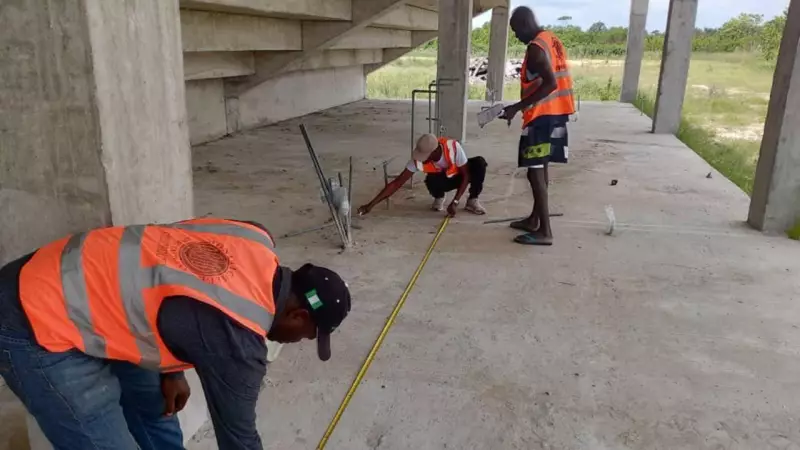
In what can only be described as a monumental failure of sports infrastructure development, the once-promising Ugborodo Stadium project in Delta State now stands as a haunting monument to mismanagement and broken promises.
From Global Dreams to Grass-Filled Nightmare
The ambitious project, initiated under the FIFA Goal Project scheme, was meant to be a state-of-the-art sporting facility that would nurture local talent and host international competitions. Today, instead of echoing with the cheers of football fans, the complex lies silent—overtaken by weeds and decaying structures.
The Anatomy of a Failed Project
Our investigation reveals a troubling pattern of neglect and financial mismanagement. The main football pitch, designed to meet international standards, has become a grazing field for animals. The proposed administrative buildings stand as empty shells, while the promised training facilities exist only in architectural drawings.
Local residents express their frustration: "We watched with excitement as construction began," says community leader Chief Godwin Omatseye. "Now we watch with disappointment as our children play on dangerous, uneven fields while this multi-million naira facility rots away."
Systemic Failure Exposed
The Ugborodo Stadium saga represents more than just one failed project—it exposes deep-rooted issues in Nigeria's sports administration and project execution. Key failures include:
- Inadequate maintenance planning from inception
- Poor community engagement and ownership structure
- Lack of transparent accountability for allocated funds
- Absence of sustainable operational framework
National Implications for Sports Development
This failure has far-reaching consequences beyond Delta State. Nigeria continues to struggle with sports infrastructure despite abundant talent and international funding opportunities. The Ugborodo case raises serious questions about the country's ability to execute and maintain world-class sporting facilities.
Sports development experts warn that such failures directly impact Nigeria's competitiveness in international football and other sports. Without proper facilities, young athletes cannot develop their skills to global standards, perpetuating a cycle of underachievement.
Path Forward: Lessons for Future Projects
While the current state of Ugborodo Stadium paints a bleak picture, there are valuable lessons for future sports infrastructure projects:
- Implement robust community involvement from planning stages
- Establish clear maintenance and operational plans before construction
- Create transparent monitoring mechanisms for project funds
- Develop sustainable revenue models for facility upkeep
The story of Ugborodo Stadium serves as a cautionary tale—a reminder that building facilities is only the first step. Maintaining them and integrating them into the community's sporting ecosystem is what truly determines success or failure.






